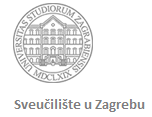Home » 1. semestar
Category Archives: 1. semestar
Uvod u lingvistički studij engleskog jezika
Uvod u lingvistički studij engleskoga jezika Naziv kolegija: Uvod u lingvistički studij engleskoga jezika Nositelj: doc. dr. sc. Kristijan Nikolić Nastavnik: doc. dr. sc. Kristijan Nikolić ECTS bodovi: 4 Jezik: engleski Semestar: Prvi (zimski) Status: obvezan Oblik nastave: 4 sata predavanja na tjedan (prema rasporedu) Preduvjeti: nema preduvjeta Ocjenjivanje: Dva pisana obvezna kolokvija tijekom semestra Sadržaj […]
Uvod u lingvistički studij engleskog jezika (2025./26.)
Naziv kolegija: Uvod u lingvistički studij engleskog jezika Nositelj kolegija: dr. sc. Mateusz Milan Stanojević, red.prof. Nastavnik: dr.sc. Mateusz-Milan Stanojević, red. prof. (nositelj); dr.sc. Ivana Bašić, v. lekt.; dr.sc. Janja Čulig Suknaić, v. asist.; dr.sc. Alexander Douglas Hoyt, v. lekt.; dr.sc. Višnja Josipović-Smojver, red. prof.; dr.sc. Kristijan Nikolić, doc.; dr.sc. Tea Raše, v. lekt.; Mirta […]
Uvod u lingvistički studij engleskog jezika
Naziv kolegija: Uvod u lingvistički studij engleskog jezika Nositelj kolegija: dr. sc. Mateusz Milan Stanojević, red.prof. Nastavnik: dr.sc. Mateusz-Milan Stanojević, red. prof. (nositelj); dr.sc. Ivana Bašić, v. lekt.; dr.sc. Janja Čulig Suknaić, v. asist.; dr.sc. Alexander Douglas Hoyt, v. lekt.; dr.sc. Višnja Josipović-Smojver, red. prof.; dr.sc. Kristijan Nikolić, doc.; dr.sc. Tea Raše, v. lekt.; Mirta […]
Uvod u studij engleske književnosti 1
Uvod u studij engleske književnosti 1 Nositelji kolegija: dr. sc. Vanja Polić, izv. prof. i dr. sc. Sven Cvek, doc. Izvođači kolegija: Cvek, Polić, Domines Veliki, Klepač, Tutek ECTS bodovi: 4 Jezik: engleski Trajanje: 1 semestar (zimski), 1 sat predavanja i 1 sat seminara tjedno Status: obavezan Način polaganja kolegija: Kontinuirana provjera znanja. Za studente […]
Uvod u lingvistički studij engleskog jezika
Naziv kolegija: Uvod u lingvistički studij engleskog jezika EN1L01 Nositelj kolegija: dr. sc. Mateusz Milan Stanojević, izv.prof. Nastavnik: dr.sc. Marina Grubišić, doc. ECTS-bodovi: 6 bodova Jezik: engleski Semestar: I. (zimski) Status: obvezatni Oblik nastave: 4 sata predavanja Uvjeti: — Tjedan Tema Bilješke 1 Introduction Orientation, syllabus Introduction Scientific study of language. Levels of […]
Uvod u studij engleske književnosti (arhiva)
Naziv kolegija: Uvod u studij engleske književnosti (ak. god. 2014./15. i ranije)Izvođači kolegija: Polić, Cvek, Klepač, Domines Veliki, Tutek, PolakECTS bodovi: 6Trajanje: 1 semestar (zimski), 1 sat predavanja i 2 sata seminara tjednoStatus: obvezatniNačin polaganja kolegija: kontinuirana provjera znanja. Za studente koji su zadovoljili sve druge elemente kontinuirane provjere znanja ali nisu položili prvi ili […]
Suvremeni engleski jezik 1
Naziv kolegija: Suvremeni engleski jezik 1 Nastavnici: lektori (Majerovic, Zgaga, Zubak Pivarski) ECTS-bodovi: 5 bodova Jezik: engleski Semestar: I. (zimski) Status: obvezatni Oblik nastave: 2 sata seminara + 2 sata vježbi na tjedan Uvjeti: upisan studij Engleskog jezika i književnosti Ispit: pismeni i usmeni ____________________________________________________________________________________________ IZVEDBENI PLAN NASTAVE KOLEGIJA SUVREMENI ENGLESKI JEZIK 1 CILJEVI KOLEGIJA: Cilj je da studenti nauče […]
Uvod u lingvistički studij engleskog jezika-arhiv
Naziv kolegija: Uvod u lingvistički studij engleskog jezika EN1L01Nositelj kolegija: dr. sc. Milena Žic Fuchs. red. prof.. Nastavnik: dr. sc. Mateusz Milan Stanojević, doc., Marina GrubišićECTS-bodovi: 6 bodovaJezik: engleskiSemestar: I. (zimski)Status: obvezatniOblik nastave: 4 sata predavanjaUvjeti: — Tjedan Tema Bilješke 1 Introduction Orientation, syllabus Introduction Scientific study of language. Levels of linguistic study. 2 […]



